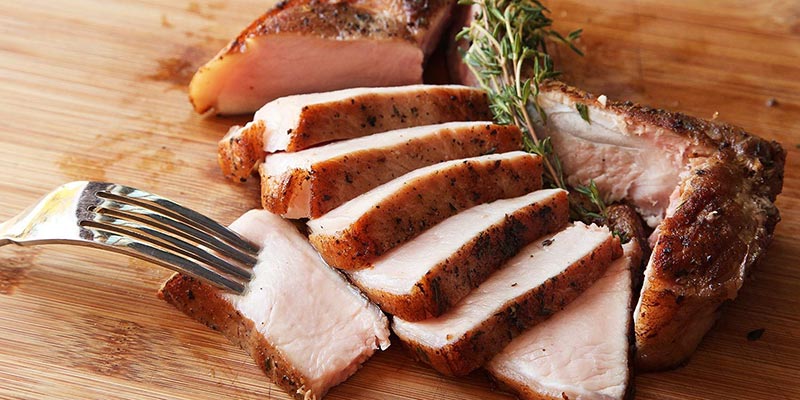Pork Meat – How Much Safe??

PORK MEAT SOME PROS & CONS OF YOUR HEALTH
Pork Meat best type of meat to eat as it has excellent taste and texture.
Pork-
Pork is the culinary name for the meat which is obtained from the domestic pig.
Consumption pattern of pork
Pig has been domesticated for 5000 years. 38 % worldwide pork meat is used in the main diet. The pork meat is taboo in the Middle East and most of the Muslim world. It is restricted in these countries because of Islamic halal and Jewish kosher dietary restriction. Pork is widely consumed in Oceania, east, southeast Asia, Europe, sub-Saharan Africa, America.
Pros of eating pork
- Protein rich- The pork meat rich in protein. 100 gm of pork gives around 27 gm of protein. It is half of the protein requirement of an adult.
- Zinc content – 100 gm of pork can satisfy the 30% daily need of an individual. A Recent study has been found that if meat is excluded from the diet it can lead to zinc deficiency in the individual. Vitamin D, Zinc and iron in red meat is best absorbed in the body.
- Iron – Pork is the good source of iron and it should be there in our main diet. Pork is a good source of iron so it can prevent anemia. 100 gm of pork can satisfy the 15 % daily requirement of our iron.
- Fat- The fat content of the pork depend upon its location it can be breast, leg etc. 100 gm of pork meat contain 6 gm of fat. Pork contain more saturated fat than unsaturated fat. Pork contain conjugated linolenic acid. The conjugated linoleic acid fight against cancer, it also helps to fight against the cardiovascular disorder.
- Vitamin B- The pork contains a relatively high level of vitamin B than that of our meat. The pork is the good source of vitamin B12, one medium serving pork liver can satisfy the monthly dosage of vitamin B12.
- Breast milk – The pork milk consumption can enhance the breast milk production. Pork trotter is recommended for better breast milk production.
Cons of eating pork-
- Viral diseases- Pork causes certain health risk resistant bacteria and other bacteria which may lead to virus and infection. Consuming pork with contaminated foodborne bacteria can cause fever, diarrhea, vomiting, abdominal cramp, and dehydration. Pork can get contaminated during the slaughtering procedure. Leaving meat out, improper meat handling or if it is not cooked for a long time.
- Round warm infection- Trichinosis is the round worm infestation occur due to pork consumption. Under cook may contain Trichinella spiralis parasite, it is also known as the pork warm. Round warm multiply in the intestine and passes through the gut into the blood stream. Then it invades the muscle tissues, lungs, brain, heart, and diaphragm.
- Heart disease risk- The pork has a high level of LDL cholesterol, it is bad cholesterol. Too much consumption of pork can lead to heart disease.
Pork has a lot of advantage and disadvantages. Pork should be consumed with precautions.










